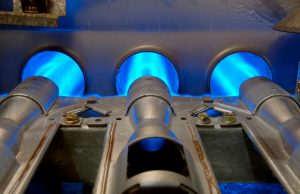 With all the types of heating systems out there on the market, it’s no surprise that homeowners feel overwhelmed. They all boast several unique features, and some features might even overlap—it’s easy to feel like you could be missing out by choosing one system over another.
With all the types of heating systems out there on the market, it’s no surprise that homeowners feel overwhelmed. They all boast several unique features, and some features might even overlap—it’s easy to feel like you could be missing out by choosing one system over another.
Instead, we think you should approach it from the other end: take some factors of heating systems into consideration and then let that inform you of what kind of heater is best. We’ll help you get started with three important factors in choosing a new heater.
Longevity
How would you feel if you installed a top-of-the-line heater estimated to last 20 years, but then a few years later, realized that you wanted to move to out? You would end up spending a lot of money investing in a very nice heating system for the next resident instead of for yourself!
If you don’t see yourself settling down for life in one home, you might consider going for a system that’s easy and inexpensive to install, such as a gas or electric furnace. Even though these systems are rated to last between 10 and 15 years, the cost of installation will be much easier on you.
But if you are determined to settle down, then a long-term investment could be a wise decision. A geothermal heat pump, for example, can last nearly 50 years—all while providing unmatched efficiency.
Fuel Type
Fuel costs can fluctuate not just from region to region, but based on how efficient your heating system is.
For example, electric furnaces are even more efficient than gas furnaces, but the cost of electricity can nullify that benefit. On the other hand, heat pumps use electricity much better than electric furnaces, but that’s going to come with a more expensive installation cost.
Electricity aside, it might make more sense to stick with a natural gas furnace. After all, natural gas is a cheap resource—that’s part of the reason why it’s so widely used across the nation.
It all depends on how often you plan to use the system, the size of your home, and other factors that aren’t obvious on the surface. Teaming up with an expert of heating installation in Fort Wayne, IN can prove helpful in sorting out all these cost estimates.
Control and Flexibility
A normal HVAC system will heat your entire home to the same temperature. While convenient and cost-effective, it may not actually seem that way to someone who would prefer to have more control over their system. Zone control allows the homeowner to heat different parts of the home at different temperatures.
For a system that uses ducts, such as a normal heat pump or a furnace, zone control should be installed while the ducts are installed. Otherwise, ductless mini split heat pumps are a great zone control solution.
Go With What Works for You
By finding out what you do and do not need in an HVAC system, you should be able to narrow down your options when choosing a new heater.
